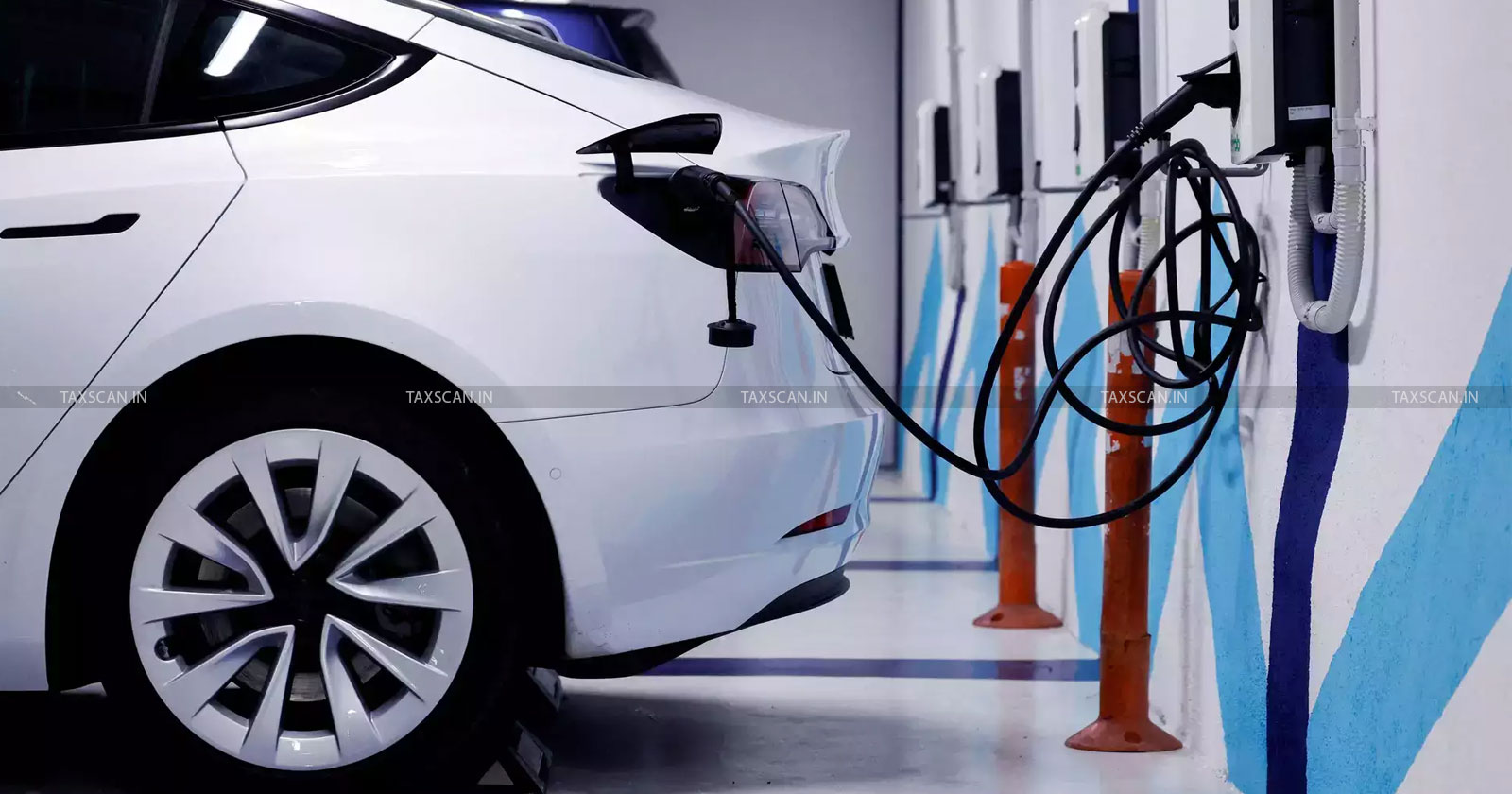Lower Customs Duty for Companies setting up manufacturing facilities for EVs to limited imports of cars [Read Order]
Government approves E- Vehicle policy to promote India as a manufacturing destination for EV

Customs Duty – EV manufacturing customs duty – Lower customs duty policy – E Vehicle Policy – TAXSCAN
Customs Duty – EV manufacturing customs duty – Lower customs duty policy – E Vehicle Policy – TAXSCAN
In a significant move aimed at positioning India as a leading manufacturing hub for electric vehicles ( EVs ), the Union Government has greenlit an ambitious E-Vehicle Policy. This policy aims to attract substantial investments from global EV manufacturers and develop a sustainable ecosystem for the production of technologically advanced EVs within the country.
1. Minimum Investment Requirement: A minimum investment of Rs 4150 crore (approximately USD 500 million) is required, with no upper limit on maximum investment, signaling a clear invitation to major players in the EV industry.
2. Manufacturing Timeline: Companies setting up manufacturing facilities for EVs are given a timeline of three years to establish their operations in India and commence commercial production of EVs. Additionally, they are expected to achieve 50% domestic value addition within a maximum of five years.
3. Import Regulations: To facilitate the initial stages of manufacturing setup, companies will be permitted limited imports of cars at a lower custom duty rate. The customs duty of 15% (applicable to Completely Knocked Down units) would apply to vehicles with a minimum CIF value of USD 35,000 and above, for a period of five years.
4. Incentives and Guarantees: The policy offers incentives in the form of duty foregone on imported EVs, subject to the level of investment made by the company. To ensure accountability, companies are required to back their investment commitments with a bank guarantee, which will be invoked in case of non-achievement of domestic value addition and minimum investment criteria.
The approval of this policy is expected to have far-reaching benefits, including:
- Enhanced access to cutting-edge EV technology for Indian consumers.
- Strengthening of the Make in India initiative and promotion of healthy competition among EV manufacturers.
- Increased production volumes, economies of scale, and lower production costs.
- Reduction in crude oil imports, trade deficit, and air pollution, particularly in urban areas.
- Positive impact on public health and the environment.
By laying down clear investment guidelines and import regulations, the government aims to create a conducive environment for the growth of the EV sector in India, aligning with global trends towards sustainable mobility solutions.
Support our journalism by subscribing to Taxscan premium. Follow us on Telegram for quick updates


